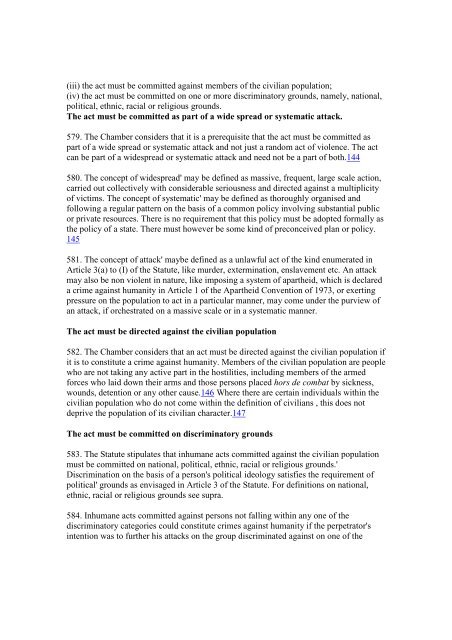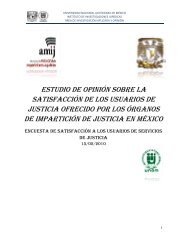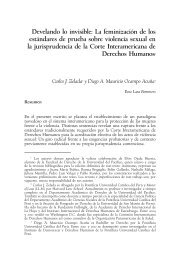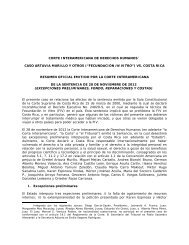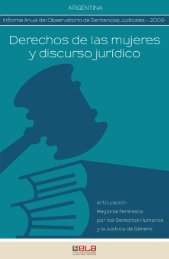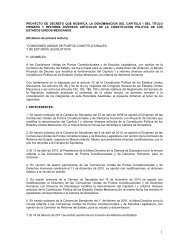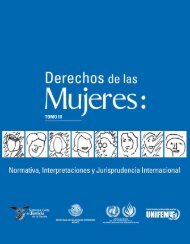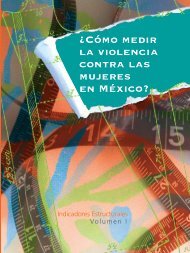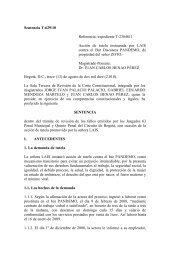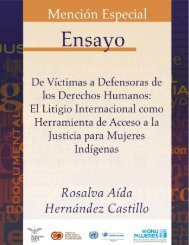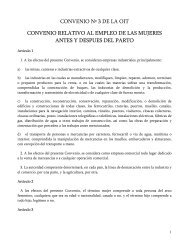Case No. ICTR-96-4-T - International Criminal Tribunal for Rwanda
Case No. ICTR-96-4-T - International Criminal Tribunal for Rwanda
Case No. ICTR-96-4-T - International Criminal Tribunal for Rwanda
- No tags were found...
Create successful ePaper yourself
Turn your PDF publications into a flip-book with our unique Google optimized e-Paper software.
(iii) the act must be committed against members of the civilian population;(iv) the act must be committed on one or more discriminatory grounds, namely, national,political, ethnic, racial or religious grounds.The act must be committed as part of a wide spread or systematic attack.579. The Chamber considers that it is a prerequisite that the act must be committed aspart of a wide spread or systematic attack and not just a random act of violence. The actcan be part of a widespread or systematic attack and need not be a part of both.144580. The concept of widespread' may be defined as massive, frequent, large scale action,carried out collectively with considerable seriousness and directed against a multiplicityof victims. The concept of systematic' may be defined as thoroughly organised andfollowing a regular pattern on the basis of a common policy involving substantial publicor private resources. There is no requirement that this policy must be adopted <strong>for</strong>mally asthe policy of a state. There must however be some kind of preconceived plan or policy.145581. The concept of attack' maybe defined as a unlawful act of the kind enumerated inArticle 3(a) to (I) of the Statute, like murder, extermination, enslavement etc. An attackmay also be non violent in nature, like imposing a system of apartheid, which is declareda crime against humanity in Article 1 of the Apartheid Convention of 1973, or exertingpressure on the population to act in a particular manner, may come under the purview ofan attack, if orchestrated on a massive scale or in a systematic manner.The act must be directed against the civilian population582. The Chamber considers that an act must be directed against the civilian population ifit is to constitute a crime against humanity. Members of the civilian population are peoplewho are not taking any active part in the hostilities, including members of the armed<strong>for</strong>ces who laid down their arms and those persons placed hors de combat by sickness,wounds, detention or any other cause.146 Where there are certain individuals within thecivilian population who do not come within the definition of civilians , this does notdeprive the population of its civilian character.147The act must be committed on discriminatory grounds583. The Statute stipulates that inhumane acts committed against the civilian populationmust be committed on national, political, ethnic, racial or religious grounds.'Discrimination on the basis of a person's political ideology satisfies the requirement ofpolitical' grounds as envisaged in Article 3 of the Statute. For definitions on national,ethnic, racial or religious grounds see supra.584. Inhumane acts committed against persons not falling within any one of thediscriminatory categories could constitute crimes against humanity if the perpetrator'sintention was to further his attacks on the group discriminated against on one of the


